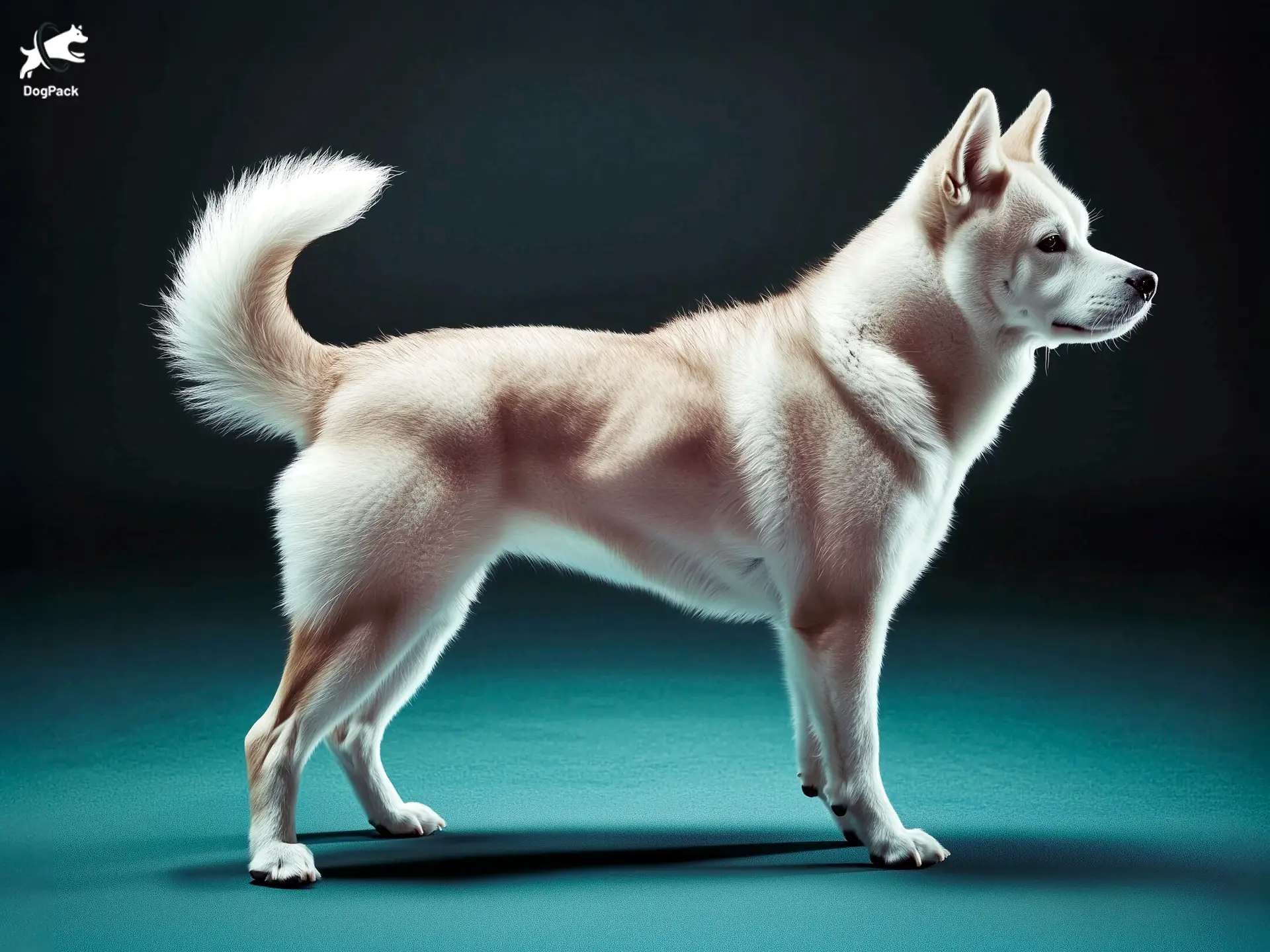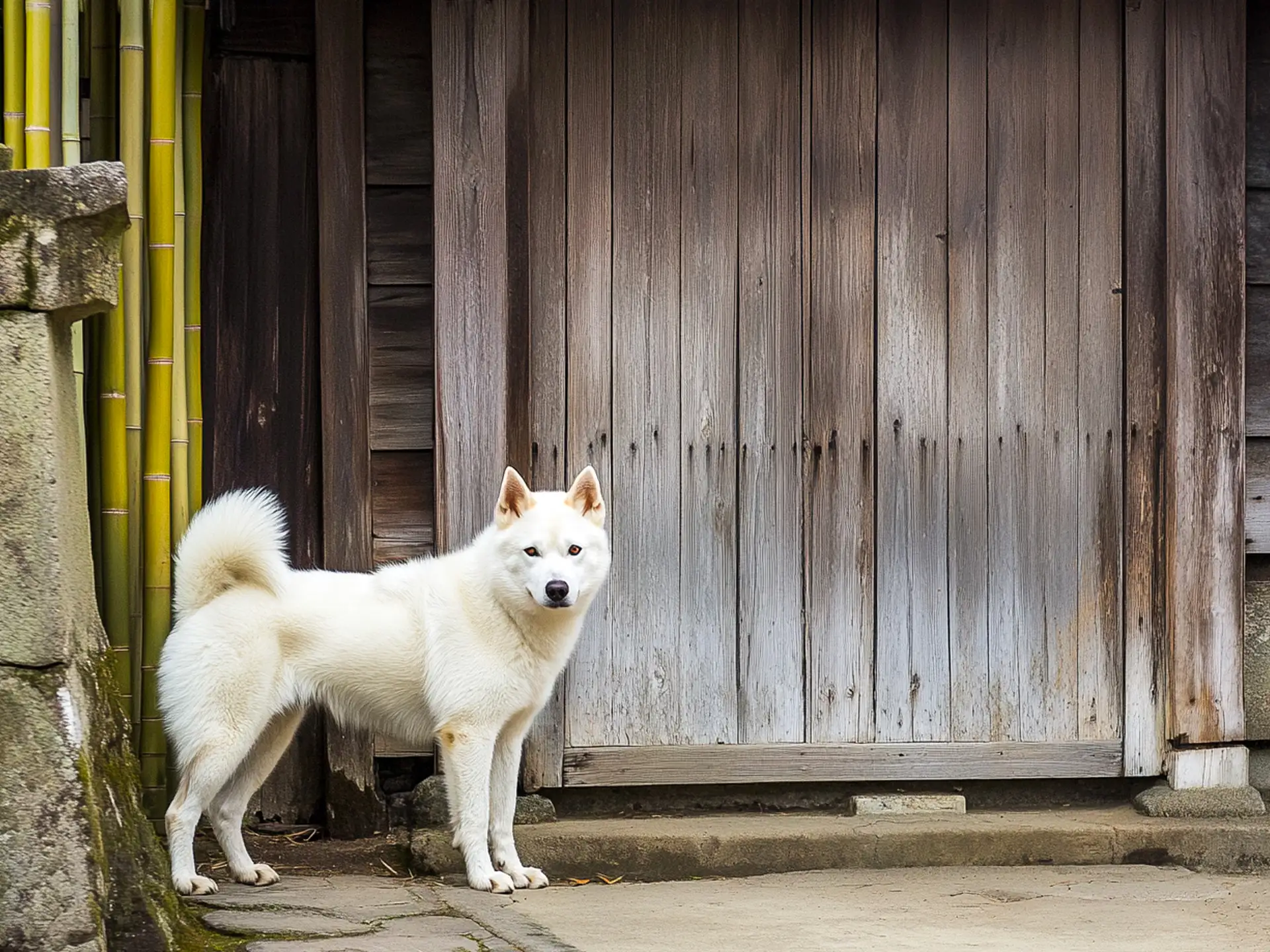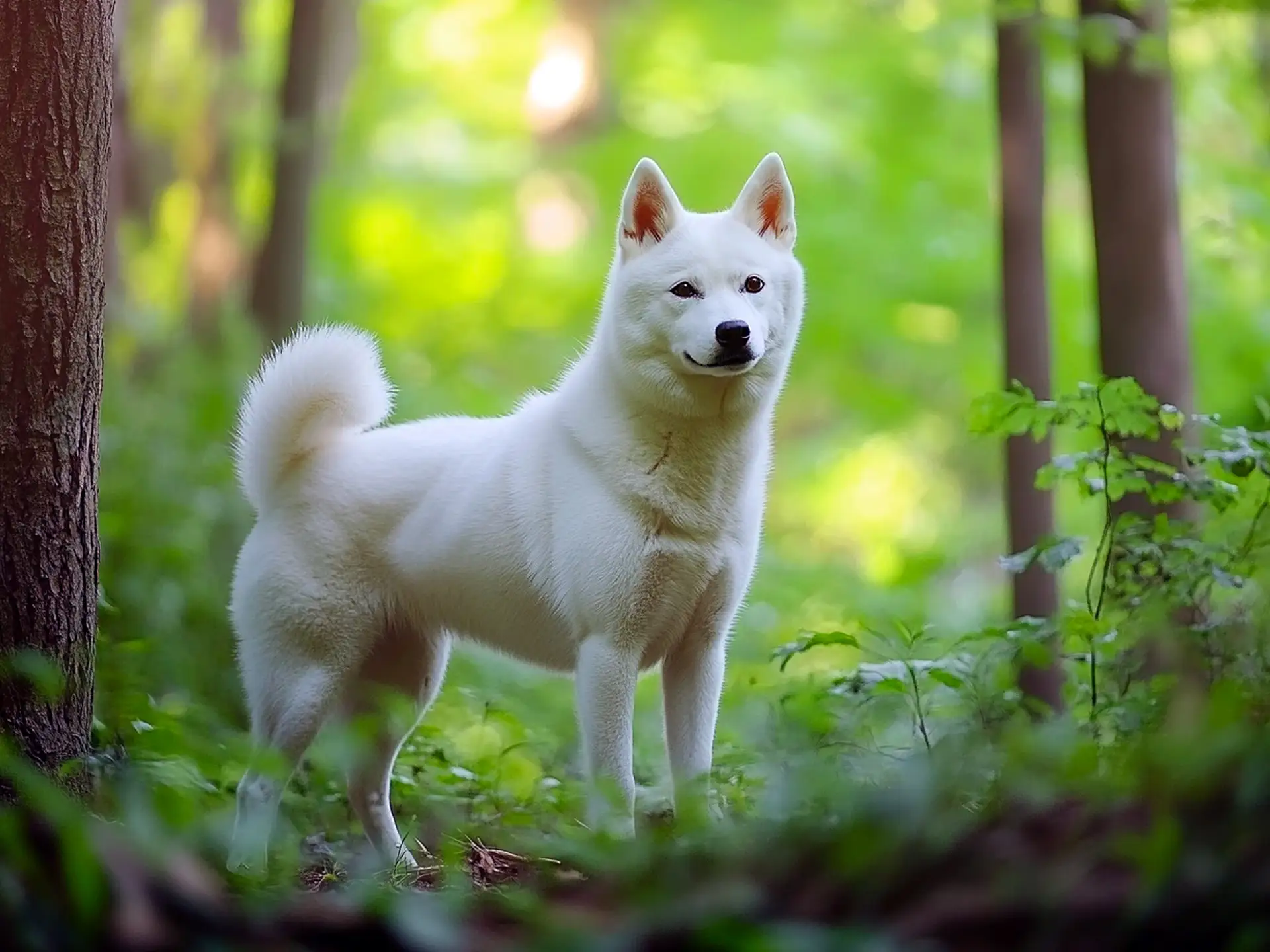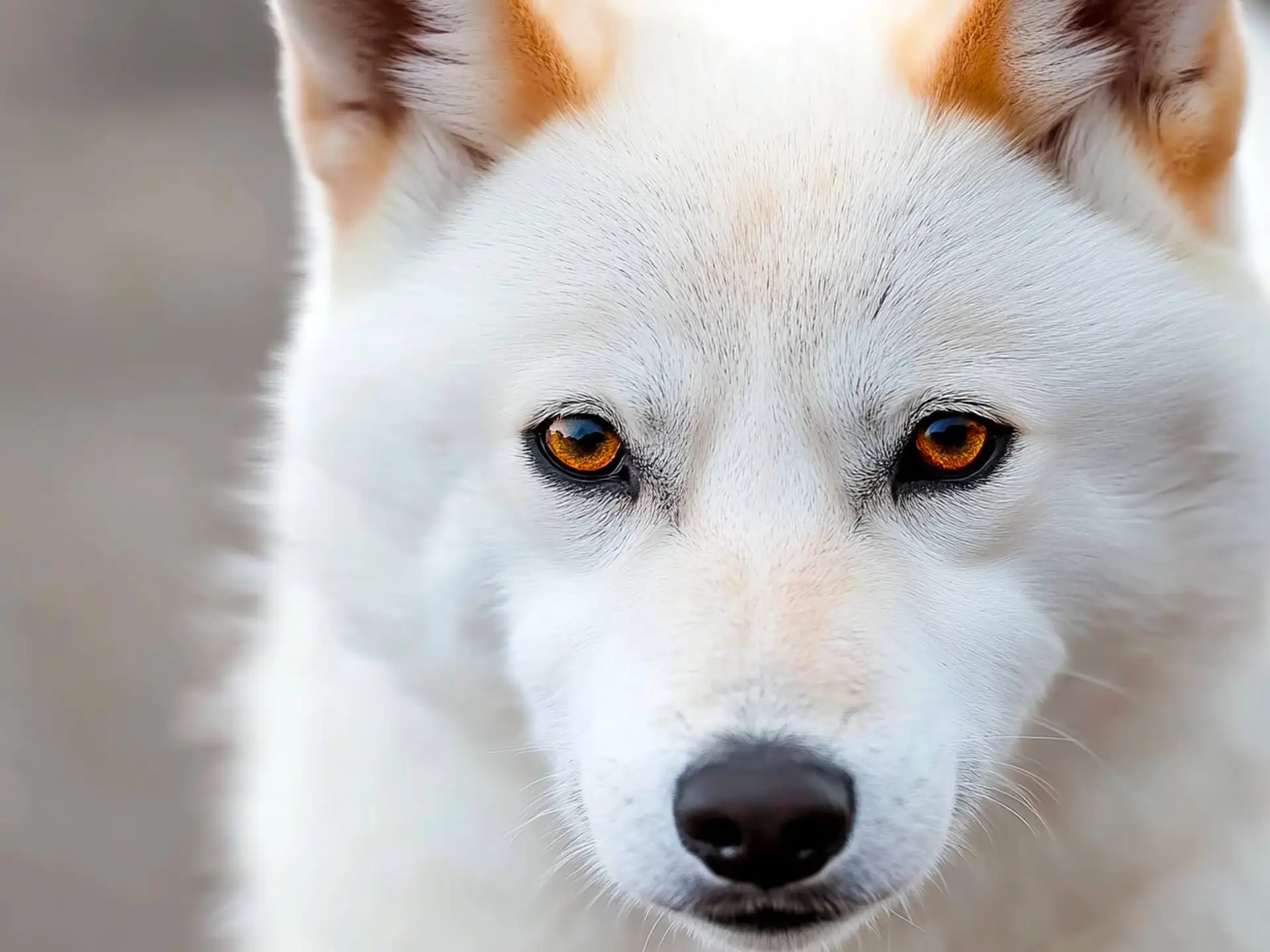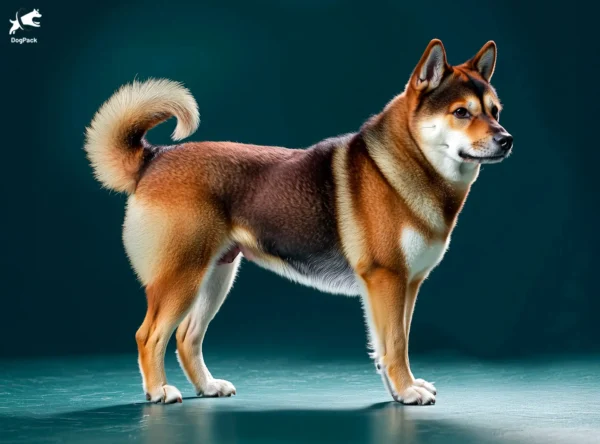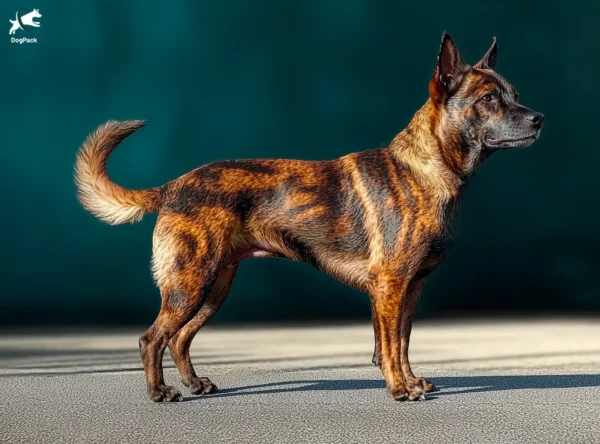Kishu Ken Dog Breed Info & Overview
This medium-sized dog from Japan has earned a reputation for exceptional hunting instincts and steadfast loyalty. With their alert demeanor and strikingly expressive eyes, they stand out among rare dog breeds. Kishu Ken enthusiasts value the breed’s dedication to family and relentless energy, making these dogs a fascinating companion for experienced owners.
Characteristics
Pictures
Breed History
The Kishu Ken traces back centuries in Japan’s mountainous regions, where they excelled at hunting wild boar and deer. Their name originates from the Kishu region (modern-day Wakayama and Mie prefectures). At one time, this fearless dog was reserved for Japan’s elite huntsmen, prized for its stealth, tenacity, and unwavering focus on the quarry. Even today, their lineage remains closely tied to these ancient hunting traditions.
Throughout the years, selective breeding preserved their natural instincts while refining a calm, devoted temperament. As Japan modernized, fewer families depended on large-scale hunts, and the breed’s numbers declined. However, dedicated enthusiasts and breed clubs stepped in to ensure the Kishu Ken’s legacy would endure. The preservation efforts highlight the breed’s importance to Japanese culture and its historical significance as a reliable hunting companion.
In modern times, the Kishu Ken still thrives in rural areas where hunting remains part of the local lifestyle. Outside Japan, their rarity often sparks curiosity among dog lovers seeking a unique companion. While they’re recognized by some international kennel clubs, they’re still considered a hidden treasure among Japanese medium dog breeds. Their story continues as passionate owners keep this ancient breed’s spirit alive.
Temperament, Personality
Expect a loyal, vigilant guardian who forms strong bonds with family. These dogs typically have a calm demeanor inside the home, yet they spring into action when they sense potential prey or a need to protect. Socialization is vital so your Kishu Ken feels at ease with new experiences. Their innate bravery and focus make them wonderfully reliable, though they can be reserved around unfamiliar faces.
This breed loves a challenge—whether it’s sniffing out hidden treats or learning advanced commands. Although independent, they treasure time spent close to their loved ones. Families that offer firm, consistent leadership often discover that a Kishu Ken thrives under clear boundaries. When introduced gently to children, they’re affectionate and watchful, but they do best with older kids who understand how to respect a dog’s space.
Some Kishu Kens remain cautious with strangers, a trait that stems from their protective instincts. Early socialization, exposure to different environments, and positive reinforcement can help them relax around guests. If you have other pets, gradual introductions are recommended, given the breed’s strong prey drive. Ultimately, their loyal, steady temperament makes them a wonderful companion for those willing to meet their energetic needs.
Physical Characteristics
Kishu Kens are strikingly athletic, with a well-balanced frame that underscores their agility. Their coat is typically short or medium-length, featuring a dense undercoat for insulation. Common coat colors include white, sesame, and occasionally black or red, although pure white remains the most iconic.
They possess a wedge-shaped head and pointed ears, reminiscent of other spitz-type breeds. The tail often curls over their back, hinting at their Nordic-like heritage. A broad chest and muscular limbs give them the strength to tackle rugged terrain, essential in their boar-hunting days. Despite their robust build, they maintain a graceful silhouette.
Whether bounding through forests or napping at your feet, a Kishu Ken carries itself with quiet confidence. Their dark, almond-shaped eyes convey intelligence and alertness. While moderate in stature compared to some working dogs, they project an air of resilience, reminding everyone of their hunting roots. This unique blend of strength and elegance sets them apart in the world of rare dog breeds.
Health Issues
Though generally robust, this breed can be prone to specific health concerns. Hip dysplasia appears occasionally, so routine screenings and maintaining a healthy weight are crucial. Some Kishu Kens may also inherit certain eye conditions, such as progressive retinal atrophy (PRA), which can affect vision over time.
Regular checkups with a veterinarian are essential to catch potential problems early. A balanced diet and proper exercise keep their joints, bones, and muscles strong. Vaccinations and parasite prevention schedules should be strictly followed, especially in areas where ticks and fleas thrive.
If you suspect any discomfort or behavioral changes, timely action is key to preventing more serious complications. Because the Kishu Ken is relatively rare, consult breeders or online resources for breed-specific health updates. Organizations like the Orthopedic Foundation for Animals provide valuable health testing insights, helping you make informed decisions about your dog’s wellbeing.
Grooming Needs
Their double coat calls for regular brushing—aim for at least once or twice a week. During seasonal shedding, you may need to brush daily to manage loose fur. A slicker brush or comb works well to reach the dense undercoat and remove any tangles.
Baths aren’t required often; too frequent washing can strip the coat’s natural oils. Stick to a mild, dog-friendly shampoo and rinse thoroughly to avoid irritation. Keeping the ears clean and dry prevents infections, while trimming nails every few weeks is necessary for comfort and proper movement.
Kishu Kens appreciate a consistent grooming routine, especially if introduced at a young age. Make these sessions positive by offering treats and gentle praise. Over time, your dog will learn to stand calmly, making upkeep much easier. Remember, healthy skin and coat also stem from proper nutrition and avoiding external parasites.
Exercise Requirements
Daily physical activity is non-negotiable for this high-energy breed. Aim for one or two hours of robust exercise, including brisk walks, play sessions, or agility work. Engaging their active minds with tasks like scent games or advanced obedience training is equally important.
Being a natural hunter, a Kishu Ken craves opportunities to roam and explore. Securely fenced yards or safe off-leash areas keep them content while preventing unexpected chases after wildlife. Structured hikes, especially in woodland terrains, give them a chance to tap into their heritage.
Apartment living can be challenging unless you’re ready to commit to frequent outings and mental stimulation. If their energy isn’t channeled, they can become bored or anxious. Providing puzzle toys, obedience drills, and playtime with other dogs helps maintain both their physical and mental wellbeing.
Training Tips
Consistency and patience are paramount when training a strong-willed breed. While the Kishu Ken is intelligent and capable of learning advanced commands, they also have an independent streak. Positive reinforcement, rather than harsh corrections, keeps them motivated and fosters a trusting relationship.
Begin with simple commands like “sit,” “stay,” and recall cues. Keep sessions short, fun, and reward-based to hold their interest. Incorporate varied environments to ensure they can follow commands around distractions—this is vital for a breed with a history of focusing on prey.
Socialization should start as early as possible, exposing them to different people, pets, and environments. Gradual, positive experiences help shape a well-rounded companion. If you encounter training hurdles, enrolling in specialized hunting or advanced obedience classes can refine their skills and channel their drive productively.
Nutrition, Diet
Because the Kishu Ken historically hunted wild game, they thrive on a protein-rich diet that supports their active lifestyle. Opt for premium, grain-inclusive kibble containing real meat or fish as the first ingredient. They typically do well with formulas that include moderate fat levels to sustain energy but avoid excessive weight gain.
Split their daily intake into two meals to keep energy levels steady and reduce bloat risk. An adult Kishu Ken in the 50–75 pound range often requires about 2.5 to 3 cups of high-quality kibble daily, depending on activity level. Monitor body condition—ribs should be palpable without being too visible.
Treats can be used for training but keep them balanced with the overall caloric intake. Lean meats or freeze-dried fish snacks align well with their hunting heritage. Consult your vet for specific dietary concerns like allergies, as some Kishus can be sensitive to common proteins. Regular weigh-ins ensure they remain at an optimal, athletic build.
Adoption, Breeders
Finding a reputable Kishu Ken source may prove challenging given their rarity. Adopting through breed-specific rescues is a wonderful option—some Kishus end up in foster care when families underestimate their energy needs. Seek out rescue groups focusing on Japanese spitz types, as they might occasionally have a Kishu available.
If you prefer a breeder, look for one committed to preserving the breed’s hunting lineage, health testing, and proper socialization. The National Kishu Ken Club (NAKC) offers resources and can guide you toward ethical breeding programs. It’s wise to visit the breeder’s facility, meet the parents, and ask questions about health clearances.
Before committing, ensure you’re ready to meet this breed’s physical and mental requirements. A well-bred Kishu Ken is a loyal partner, but their energy can overwhelm an unprepared household. For a deeper look into adoption avenues, Adopt-a-Pet occasionally lists Kishu-type mixes or purebreds in need of homes. Research thoroughly and choose a path that aligns with your lifestyle and the dog’s best interests.
Family Pet?
Kishu Kens can do well in family settings that value outdoor adventures and structured activities. When properly introduced, many become surprisingly gentle around children, always on alert for potential dangers. However, they may be too energetic for toddlers or very young kids, so supervision is a must.
Families with older children who appreciate an active lifestyle often find this breed incredibly rewarding. Their protective nature can be reassuring, though teaching everyone in the household consistent commands avoids confusion. Early training and socialization smooth out any rough edges.
Pet owners with cats or smaller animals must be cautious. The Kishu Ken’s prey drive is strong, and early, controlled introductions are essential. That said, many Kishus learn to coexist peacefully once boundaries are established. With the right environment, they morph into a cherished companion that bonds deeply with its family.
Right For You?
This breed suits individuals or families who thrive on outdoor pursuits and can commit to significant daily exercise. If you value a dog that’s both a fierce hunter and a devoted companion, the Kishu Ken may be a perfect match. However, they’re not ideal for novice owners or those lacking the time to train and socialize properly.
Ask yourself if you can offer ample space, mental challenges, and consistent guidance. These requirements are non-negotiable for a healthy, happy dog. If the idea of weekend hikes, daily jogs, and advanced training sessions excites you, this might be the companion you’ve been looking for. On the flip side, if you prefer a laid-back lap dog, consider exploring small dog breeds instead.
Ultimately, choosing a Kishu Ken means embracing an energetic spirit rooted in centuries of hunting excellence. Their distinct look, intense loyalty, and knack for adventure reward owners who invest in their needs. If you’re prepared to channel their drive into healthy outlets, you’ll be rewarded with a dedicated ally ready to face any challenge by your side.
Conclusion
Kishu Kens are faithful, spirited dogs best suited for active households ready to engage their hunting instincts and love of exploration. They thrive under experienced guidance and clear leadership, rewarding that dedication with unwavering loyalty. If you’re prepared for plenty of outdoor fun and can offer a purposeful life, the Kishu Ken might just be your ideal adventure companion or devoted family friend.
FAQs
-
Why is the Kishu Ken often seen with white coats despite other recognized colors?
The white coat became dominant in Kishu Kens due to historical breeding practices favoring this color for visibility during hunts. While red and brindle are also recognized, white remains the most iconic and celebrated shade.
-
Are Kishu Kens suitable for highly active outdoor lifestyles?
Yes, the Kishu Ken thrives in an active outdoor lifestyle. Their endurance and agility make them excellent companions for hiking and long treks. However, secure areas are crucial due to their strong prey drive.
-
How does the Kishu Ken adapt to modern urban environments?
Kishu Kens can adapt to urban living with sufficient mental and physical stimulation. However, they may struggle with heavy traffic areas or noise without early exposure, as they are traditionally quiet and nature-oriented dogs.
-
What unique traits distinguish the Kishu Ken from other Japanese breeds?
Unlike other Japanese breeds, Kishu Kens are known for their single-minded focus during hunts. This trait translates into an independent but loyal temperament, making them different from more social breeds like the Shiba Inu.
-
Can the Kishu Ken excel in dog sports or advanced training?
Absolutely! Kishu Kens excel in agility, tracking, and scent work due to their intelligence and physical abilities. Engaging them in structured activities helps channel their energy and deepens their bond with their owners.
Breed Ratings
The Kishu Ken learns quickly but can be headstrong, requiring consistent, positive training methods.
They enjoy play, but their primary drive is hunting. Engaging, purposeful games resonate best.
This breed is always ready for action, thriving on long runs, hikes, and interactive tasks.
Expect moderate shedding, especially during seasonal coat transitions.
With a strong hunting instinct, they’ll pursue small animals if given the chance.
Weekly brushing is necessary, and more frequent grooming is needed during heavy sheds.
Highly trainable but requires patience and structure due to their independent streak.
They form close bonds and can become anxious if left without enough mental and physical stimulation.
Generally quiet, but will voice concerns if something seems amiss.
Not prone to drooling, though some individuals may salivate mildly when excited.
They can get along with other dogs if properly socialized, but prey drive can complicate things.
Overall robust, but watch for hip dysplasia and certain eye conditions common in the breed.

